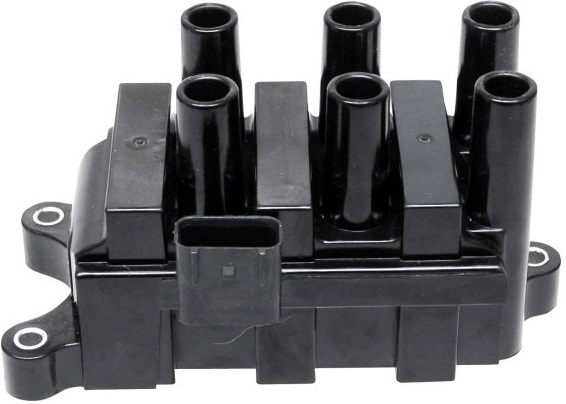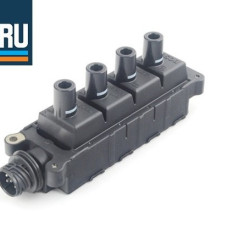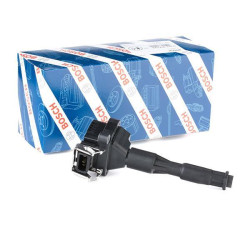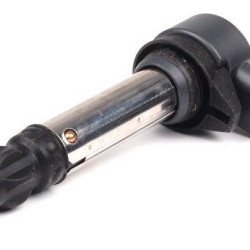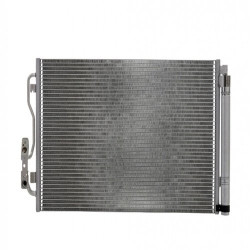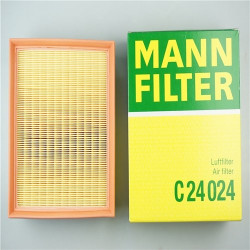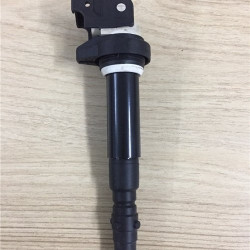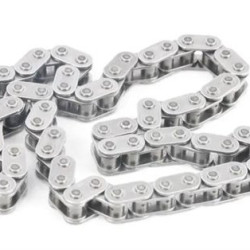BMW Coil Ignition
The BMW Coil, Ignition Coil; are electronic components that are mounted on separate spark plug heads for each cylinder and generate voltage to create a spark in the spark plugs.
BMW Coils and Operating Principles
Bmw Coils Introduction
BMW coils are one of the critical components that ensure the efficient and reliable operation of internal combustion engines. These coils convert low-voltage electricity from the battery into high-voltage electrical energy, transmitting it to the spark plugs and igniting the fuel-air mixture in the combustion chamber. In this article, we will examine the structure, operating principles, and effects on performance of BMW coils.
Structure of Coils
BMW coils typically consist of the following basic components:
Primary Winding (Primary Coil): The primary winding made of thick copper wire carries the low-voltage electricity from the battery. This winding usually consists of several hundred turns.
Secondary Winding (Secondary Coil): The secondary winding made of fine copper wire is designed to produce high voltage. This winding typically consists of several thousand turns.
Iron Core: The iron core located between the primary and secondary windings intensifies the magnetic field, increasing voltage conversion.
Insulator and Housing: Coils are covered with insulator and housing to protect against high voltage and provide resistance to environmental factors.
Operating Principles
The operating principles of BMW ignition coils are based on the laws of electromagnetic induction. Here is a step-by-step explanation of this process:
Low Voltage Electric Input: The ignition system starts with a low-voltage electric current controlled by the engine control unit (ECU). This current passes through the primary winding and creates a magnetic field.
Magnetic Field Formation: The electric current passing through the primary winding creates a magnetic field in the iron core. This magnetic field concentrates around the secondary winding.
Current Interruption: The ECU suddenly cuts off the electric current in the primary winding. This causes the magnetic field to collapse rapidly.
High Voltage Electric Production: The collapse of the magnetic field generates a high-voltage electric current in the secondary winding through electromagnetic induction. This voltage is transmitted to the spark plug.
Ignition of the Fuel-Air Mixture: The high voltage creates a spark in the spark plug and ignites the fuel-air mixture in the combustion chamber. This combustion allows the engine to produce power.
Performance and Efficiency
BMW coils are specifically designed to provide high performance and efficiency. Here are the effects of BMW coils on performance:
High Voltage Production: BMW coils are optimized to produce high-voltage electricity. This allows the spark plugs to generate a stronger spark and ignites the fuel-air mixture more efficiently.
Precise Timing: The ignition timing controlled by the ECU ensures that combustion occurs at the right time in each cylinder of the engine. This enables the engine to operate more efficiently and deliver higher performance.
Fuel Efficiency: Efficient ignition allows for more effective combustion of fuel. This reduces fuel consumption and provides vehicle owners with a more economical driving experience.
Durability and Reliability: BMW coils are manufactured using high-quality materials and advanced production techniques. This ensures that the coils are long-lasting and provide reliable performance even under challenging conditions.
Conclusion
BMW coils are critical components that enhance engine performance and efficiency. These coils convert low-voltage electricity into high-voltage electrical energy, transmitting it to the spark plugs and ensuring the efficient ignition of the fuel-air mixture. BMW's expertise in engineering and design ensures that these coils deliver high performance, durability, and reliability. The proper functioning of ignition coils supports the superior driving experience and engine efficiency of BMW vehicles.
 Türkçe
Türkçe
 English
English
 Русский
Русский

